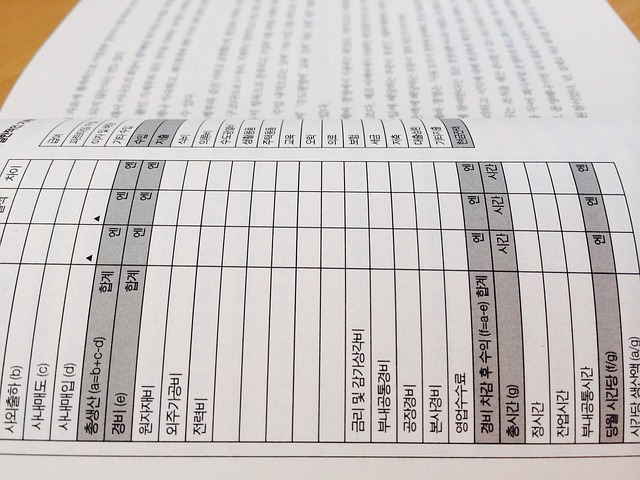In today's global financial landscape, Financial Statements UK translation services are crucial for companies expanding internationally. Accurate translations ensure compliance with diverse accounting standards and regulatory frameworks like IFRS, facilitating investor trust and market access. Specialized translators employ advanced tools, industry-specific glossaries, and finance expertise to maintain document integrity. Hybrid MT approaches with human editing will continue to enhance efficiency while meeting stringent international standards set by bodies like the UK's Financial Reporting Directive.
In today’s globalized financial landscape, accurate translations of financial statements are crucial for international compliance. As businesses expand across borders, understanding and presenting financial information coherently becomes a significant challenge. This article explores the complexities of translating financial statements, highlighting the vital role of professional UK translation services. We delve into key considerations, best practices, legal aspects, case studies, and future trends shaping global financial statement translation, emphasizing the importance of precise and compliant reporting for businesses worldwide.
- Understanding Financial Statements and Their Global Importance
- Challenges in Translating Financial Statements Across Borders
- The Role of Professional Translation Services in UK
- Ensuring Accuracy: Best Practices for Financial Translation
- Legal and Regulatory Considerations for Cross-Border Financial Reports
- Case Studies: Successful Translations in Complex Financial Scenarios
- Future Trends in Global Financial Statement Translation
Understanding Financial Statements and Their Global Importance

Financial statements are vital tools for any organisation, offering a snapshot of its financial health and performance over a specific period. These statements include balance sheets, income statements, and cash flow statements, each providing unique insights into a company’s operations. Accurate translations of these documents are essential in today’s global business landscape, especially when navigating international markets and regulatory requirements.
For instance, UK-based companies expanding overseas need to ensure their financial statements comply with local accounting standards and regulations. Professional financial statement translation services play a crucial role here, providing native language interpretations that not only capture the technical accuracy but also consider cultural nuances. This guarantees that financial information is presented coherently and concisely across borders, facilitating smoother global operations and compliance.
Challenges in Translating Financial Statements Across Borders

Translating financial statements across borders presents a unique set of challenges, especially for companies operating globally or looking to expand their market reach. With each country having its own accounting standards and regulatory frameworks, ensuring accurate and compliant translations is paramount. Financial Statements UK translation services play a vital role in navigating these complexities.
One of the primary hurdles is aligning translated documents with international reporting standards like IFRS (International Financial Reporting Standards). This requires not just linguistic proficiency but also a deep understanding of financial concepts and local regulatory nuances. Inaccurate or inadequate translations can lead to significant legal and financial implications, including penalties, misaligned reporting, and loss of trust from investors and stakeholders. Therefore, engaging professional translation services with expertise in finance is essential for global compliance.
The Role of Professional Translation Services in UK

In today’s global financial landscape, accurate translations of financial statements are paramount for businesses operating across borders. The United Kingdom, with its robust financial sector, heavily relies on clear and precise communication in various languages to maintain compliance with international standards. This is where professional translation services play a crucial role, ensuring that financial documents, such as annual reports, balance sheets, and audit reports, are translated accurately and consistently.
These specialized services employ linguists with deep knowledge of both the source and target languages, coupled with an understanding of accounting terminology. They use advanced tools and technologies to guarantee not just grammatical correctness but also the preservation of financial nuances, ensuring that the translated statements maintain their integrity and accuracy. This is particularly important for UK businesses aiming to comply with regulatory requirements and attract international investors, as it fosters transparency and builds trust in the financial markets.
Ensuring Accuracy: Best Practices for Financial Translation

Ensuring accuracy in financial statement translations is paramount for global compliance and risk mitigation. When dealing with complex financial terminology, it’s crucial to engage professional translators who possess expertise in accounting and finance. Reputable UK translation services invest heavily in training their linguists on industry-specific glossaries and concepts, ensuring a deep understanding of the subject matter.
Best practices include providing source documents in a structured format, offering clear references for terms, and allowing sufficient time for quality assurance checks. Machine translation tools can assist but should be refined by human experts to avoid errors and misinterpretations. Regular peer reviews and comparisons with native-language counterparts are essential to guarantee the integrity of financial translations, ensuring compliance across global jurisdictions.
Legal and Regulatory Considerations for Cross-Border Financial Reports

When translating financial statements for cross-border compliance, understanding the legal and regulatory landscape is paramount. Different countries have distinct accounting standards and financial reporting requirements, making it crucial to employ professional UK translation services that are well-versed in these nuances. For instance, harmonisation efforts like the EU’s Financial Reporting Directive aim to standardize practices across member states, but variations still exist.
Translation errors can lead to severe legal consequences, including regulatory fines and reputational damage. Therefore, it’s essential to work with translators who not only possess expertise in financial terminology but also have a solid grasp of the target jurisdiction’s laws and regulations. Accurate translations ensure that financial statements are compliant, transparent, and reliable, facilitating smooth navigation through complex international financial reporting requirements.
Case Studies: Successful Translations in Complex Financial Scenarios

In complex financial scenarios, accurate translations of financial statements are crucial for global compliance. Case studies from leading UK translation services highlight successful navigations through intricate accounting terminologies and regulatory requirements. One notable example involves a multinational corporation expanding into Europe, where specialized translators with expertise in both finance and multiple European languages ensured the seamless integration of financial reports, audit reports, and tax documents across different jurisdictions.
These services have proven instrumental in avoiding misunderstandings, legal complications, and financial inaccuracies. By leveraging advanced translation technologies and industry-specific glossaries, UK translation services have demonstrated their ability to handle even the most challenging financial statements, fostering trust and compliance among global businesses. This level of precision is vital for maintaining financial integrity and ensuring that companies meet the stringent regulatory demands of international markets.
Future Trends in Global Financial Statement Translation

The future of global financial statement translation is poised for significant evolution, driven by technological advancements and growing cross-border business activities. Machine translation (MT) will continue to play a pivotal role, but its limitations in handling complex financial jargon and nuances will be increasingly addressed through hybrid approaches combining MT with human post-editing. This ensures accuracy while keeping costs manageable.
In the UK and globally, regulatory bodies are setting new standards for transparency and comparability of financial reports. Translation services will need to stay ahead by incorporating these evolving guidelines, such as those from the International Financial Reporting Standards (IFRS). Specialized financial translation platforms and tools will become more common, offering not just word-for-word translation but contextual understanding, ensuring that global financial statements accurately convey the intended meaning within their specific regulatory frameworks.
Accurate financial statements translations are indispensable for global compliance and business success. Navigating cross-border reporting requirements demands specialized knowledge and expertise, which is where professional UK translation services play a pivotal role. By adhering to best practices and legal guidelines, these services ensure that financial information is not only translated accurately but also complies with international standards. Case studies highlight the impact of seamless translations in complex scenarios, underscoring the importance of precision and cultural sensitivity. As the global economic landscape continues to evolve, so too will the need for innovative solutions in financial statement translation, ensuring businesses can effectively operate on an international stage.



